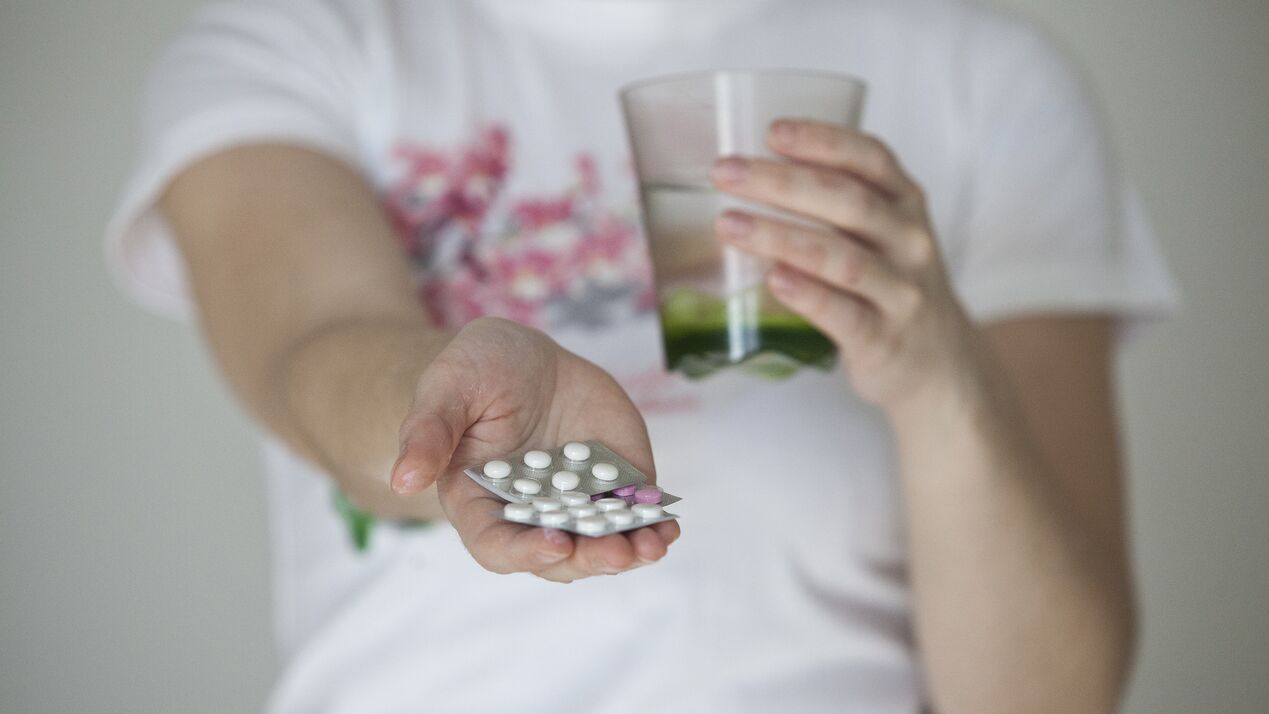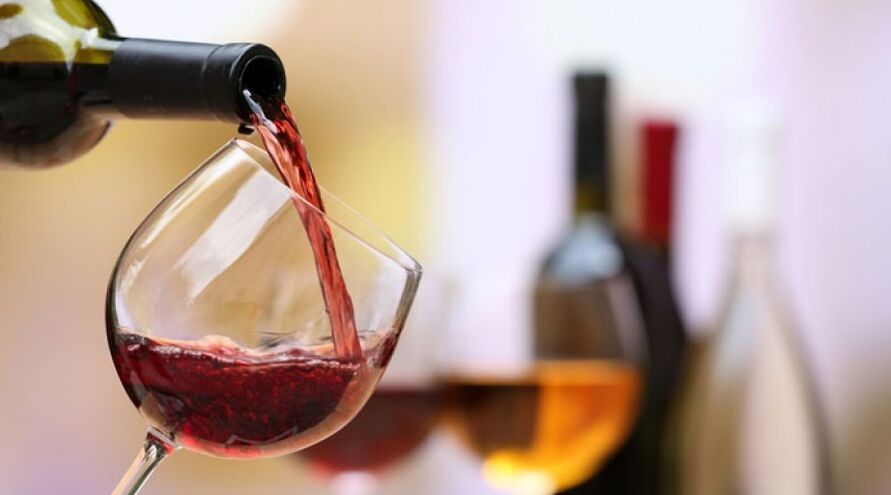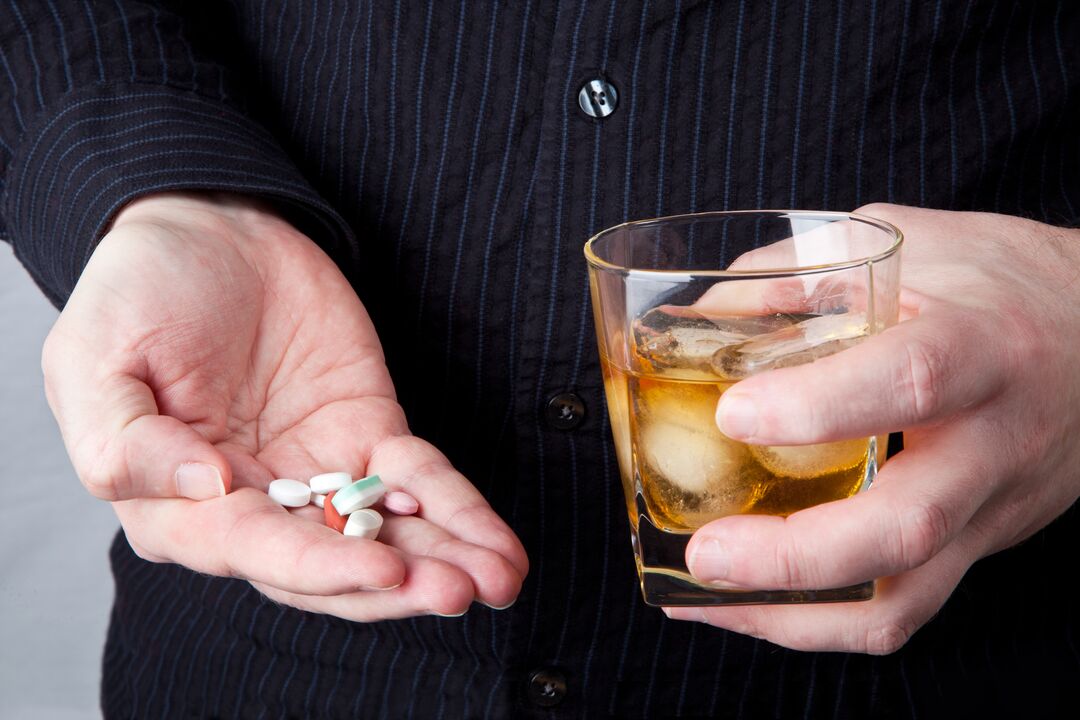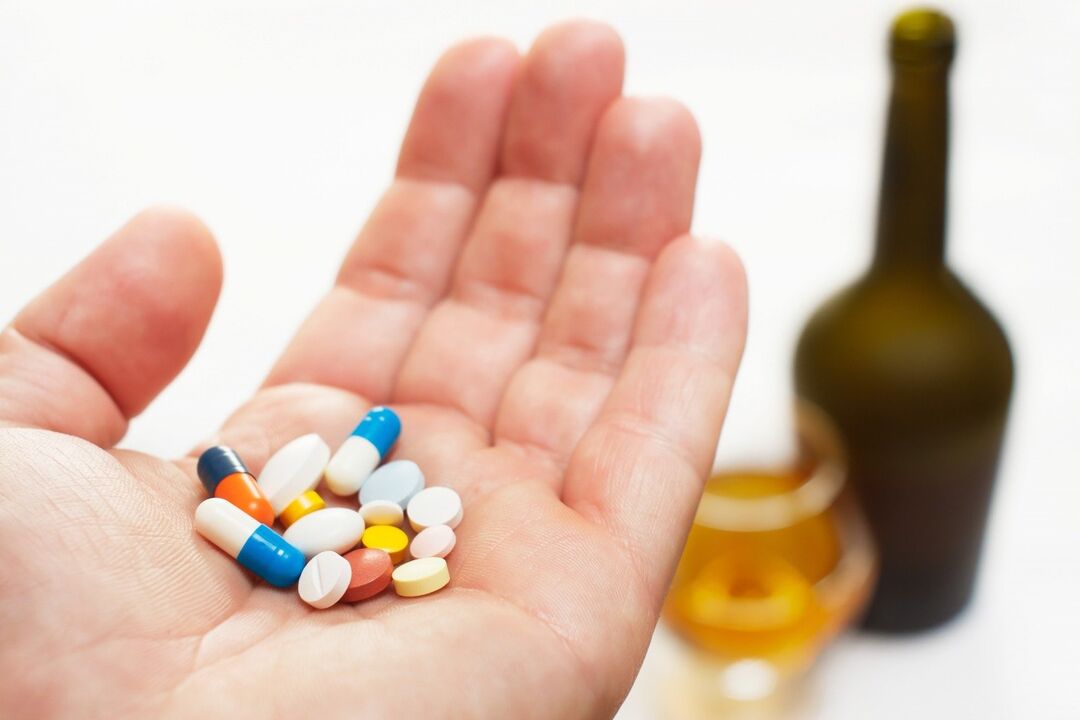
Scientists say that antibiotic active ingredients stay in the body for at least 3 days. There are drugs that have a long-lasting (long-lasting) effect, they are eliminated after only 2-3 weeks. Consulting a doctor can help prevent side effects. It is important to pay attention to the following parameters before you start drinking alcohol after taking antibiotics:
- the duration of the course of drug therapy;
- its compatibility with ethyl alcohol;
- allowed time to drink alcohol after the last dose.
Combining drugs with alcohol
In the view of some doctors, taking antibiotics at the same time as alcohol can lead to liver dysfunction, as well as reduce the effectiveness of the drug with almost no effect.
Other experts talk only about a four-hour abstinence, ensuring that at the end of this period, the drug has completed its active phase and that drinking alcohol will not affect the state of health in any way.
What happens if you mix it with alcohol
Antibiotics are prescribed to treat many diseases. During the treatment, many events take place: birthdays, corporate parties, wedding receptions, and other events. Therefore, many people are interested in the question of how much alcohol to drink after taking antibiotics. Let's consider this issue in more detail.
Interaction
To understand if it's okay to drink alcohol after taking antibiotics, you need information about drug and alcohol interactions.
Any substance that enters the body begins to be digested. First, there is a breakdown into its constituent parts, followed by a complete breakdown of the substance. Only the original elements remain. These are carbohydrates, proteins, fats.
If you drink alcohol after taking antibiotics, the decay products of the alcohol product will also separate. If at this time the drug is not completely removed from the blood, then its residue can combine with the breakdown products of alcohol. A mixture is formed that causes malfunctions in the work of internal organs.
Drinking alcohol after taking antibiotics can cause the following problems:
- the load on the liver will increase several times, so the natural filter will not cope with overload;
- allergic reactions of a different nature;
- mental health problems will begin;
- dizziness and vomiting.
How you react if you drink alcohol after taking antibiotics depends on the specific drug, the amount of alcohol you drink, the person's age and sex, and the individual characteristics of the body.
It is safe to say that you cannot drink alcohol after taking antibiotics. This rule also applies to those drugs in the annotation that do not have a direct indication of incompatibility with alcohol-containing products. The mildest side effect if you drink alcohol after a course of antibiotics will be not having the desired effect.
Although there are many important activities that cannot be done without alcohol-containing products, drinking alcohol after taking antibiotics is unacceptable.
Alcohol while taking antibiotics can lead to serious irreversible consequences. The main negative reactions of this combination include:
- Increases resistance of pathogenic microorganisms. Antibacterial drugs are prescribed to destroy pathogenic microorganisms in the human body. At the same time, alcohol weakens the effect of these drugs, at this time bacteria adapt and adapt to the active substance, increasing resistance to this group of antibiotics.
- The transition from the acute form of the disease to the chronic. Alcohol can speed up the metabolism of the active substance, while drugs break down faster and don't have time to hit the heart of inflammation. To do this, the doctor prescribes a double dose of antibiotics, the load on the body increases, and the longer it takes to treat the disease, the more difficult it is.
- An increase in blood viscosity with a combination of alcohol and antibiotics can lead to the development of a stroke or myocardial infarction, as well as problems in the functioning of the heart and blood vessels.
- Decreased concentration of the drug due to the use of alcoholic beverages. At the same time, the dose of antibacterial drugs is increased by the doctor, and with such a load the liver and kidneys have to work because of wear and tear. Perhaps the development of acute failure of these organs.
- Decreased liver function. Ethyl alcohol and antibiotics are broken down by the same liver enzymes. Under such influence, the production of these substances can cease completely, leading to severe organ toxicity and suppression.
- Risk of developing serious allergic reactions. The human body may not respond adequately to such complex influences. Anaphylaxis or angioedema with fatal consequences is an irreversible result of the interaction of alcohol with antibiotics.
- Particularly dangerous is a disulfiram-like reaction, which occurs due to the accumulation of acetaldehyde (an intermediate metabolite of ethyl alcohol) in tissues and organs, which acts as a potent nootropic on the central nervous system. nurse. Its excretion is disturbed and against this severe intoxication occurs, accompanied by: nausea, vomiting, palpitations, sweating, fever, hypotension, abdominal pain, dizziness and convulsions.
Compatible Drugs
Among antibacterial agents, there are separate drugs that allow their use in combination with alcoholic beverages:
- cephalosporins;
- preparations of the penicillin series;
- macrolite.
If you are taking medication that contains penicillin, you can drink alcohol no earlier than 4 hours after completing a course of antibiotics. This time period is quite enough for the drug to be completely absorbed into the blood and broken down in the liver, which signals the completion of the therapeutic function and the beginning of the process of eliminating the remnants of the drug through the kidneys.
If you start drinking earlier than this time, or drink too much, the effects of your treatment won't keep up. The fact is that ethanol in large quantities enhances the production of liver enzymes, which begin to actively break down not only alcohol, but also the drugs themselves.
This contributes to the rapid removal of the drug from the body, leaving the drug without time to perform its functions. In addition, alcohol has a diuretic effect that also helps to reduce the concentration of drugs and reduce their effectiveness to zero.
But there is a group of antibacterial drugs that should never be taken with alcohol or just before taking it. This is explained by the ability of these antibiotics to block the production of ethanol-degrading enzymes.
The effects of these drugs on the body are similar to those of psyllium drugs in alcoholic patients.
Antibacterial therapy, carried out using drugs with similar properties, requires the complete elimination of alcohol. Violation of this rule will result in serious consequences, possibly leading to the death of the patient.
There are a large number of groups of antibacterial substances that cannot be combined with any alcohol. These drugs include:
- Nitroimidazoles. High risk of developing a disulfiram-like reaction (can drink alcohol after only 2 days).
- Fluoroquinolones, when combined with alcohol, depress the nervous system to the point of coma, which is allowed to drink alcohol only after 36 hours.
- When interacting with ethyl alcohol, cephalosporins give disulfiram-like reactions, after 24 hours alcohol can be consumed (with kidney disease, prolonged oral duration).
- Tetracyclines damage liver cells for a very long time, they are eliminated from the body, drinking alcohol no earlier than 3 days.
- Aminoglycosides are auto- and nephrotoxic, increasing the side effects of the drug, alcohol is allowed to drink no earlier than 2 weeks later.
- Lincosamide affects the central nervous system and liver, causing disulfiram reactions, alcohol should be taken only after 4 days.
- Macrolides cause cirrhosis. It is eliminated very slowly from the body, assuming drinking alcoholic beverages after only 4 days.
- Anti-tuberculosis drugs cause the development of drug-induced hepatitis with a definitive course, any alcohol is strictly prohibited.
When can you drink alcohol after taking antibiotics: general rules
Adhering to taking antibiotics correctly will help the disease heal faster without the risk of adverse reactions. Basic rules:
- take medicine only as prescribed by a doctor (self-medication is very dangerous for health);
- ensure compliance with the correct dose and duration of antibiotics;
- The duration of drug treatment will be determined by the doctor. Average is 5 to 15 days, and prolonged use is 1 to 4 days;
- need to take tablets with clean, non-carbonated water, chrysanthemum decoction, do not drink hot tea without sugar;
- During antibiotic treatment, it is better to refuse to eat fatty foods, since they slow down the absorption of the active substance from the intestines into the blood. Make sure to consume animal protein in the form of chicken, rabbit or turkey. Limit the intake of fast carbohydrates;
- Absolute contraindication: drinking alcohol after antibiotics if less than 3 days.
Today, antibiotics are an integral part of treatment for viral infections. This raises the question of when you can drink alcohol after taking antibiotics. Antibiotics are used in the fight against most viruses and bacteria known to modern medicine. What should I do if I drink alcohol after taking antibiotics?
The duration of antibiotic treatment is usually from a few days to several months, depending on the complexity of the disease. Alcohol is not allowed during this time. Adjust your other heavy food intake. When using alcohol after taking antibiotics, the doctor cannot guarantee the maximum effectiveness of the course, in addition, complications often occur.

You can start drinking alcohol after taking antibiotics after a while. Do not drink during treatment. The number of days you need to wait before drinking alcohol varies depending on the drug.
Why are alcohol and antibiotics incompatible? The fact that antibiotics are taken automatically reduces the activity of internal organs, not only fighting infections, but also cleansing the body after drinking alcohol.
Drinking alcohol during antibiotic treatment can damage your liver, kidneys, and heart. After taking antibiotics, the natural intestinal microflora suffered a serious failure. If you drink in this state, you will find yourself lying on a hospital bed.
If you drink alcohol immediately after taking the medicine without waiting, you will experience side effects such as:
- liver failure;
- nausea and vomiting;
- headache;
- dizzy;
- blurred mind.
These are the main reasons why alcohol after taking antibiotics is allowed only a few days after the end of the course.
The period of abstinence
Of course, the question of how long it takes to start drinking after taking antibiotics should be asked by your doctor. If you forgot to ask your doctor about it and you are now unable to contact him, refer to the footnote that accompanies the remedy. Read carefully when looking for information on how long to take your medication, its compatibility with alcohol, and how long after you can drink alcohol.

Usually, when asked how many days you can return to the "alcohol" life, the answer is a few days. The duration of abstinence varies from three days to a week. Regardless of what specific treatment was used and how long it took to completely clear the body.
Even if the instructions do not say whether it is possible to drink alcohol after taking antibiotics, it is better to postpone the festivities for a few days. The problem is not only in the compatibility of drugs and alcohol, but also in the fragile body. Even the smallest dose can be a serious poison to him.
Strict ban
A strict ban on drinking alcohol during a course of antibiotics is not to the liking of doctors. Even if you do not notice any side effects when combining these two ingredients, this does not mean that the body has not been damaged.
With the combination of ethanol and drug, there is not necessarily a direct effect. However, the therapeutic properties of the drug will be reduced. Accordingly, the disease is not cured but must be used for another course, which will seriously affect the liver and a number of other organs related to the excretory system.
There is a whole class of antibiotics, the combination of them with alcohol is strictly prohibited. The annotation of such drugs always notes the lack of compatibility with ethanol. In addition, an appropriate warning to the patient will be given by the physician.
In particular, drinking alcohol will be strictly prohibited if you have been prescribed a drug of the tetracycline class. They are widely used in medicine to treat various infections. Preparations from the levomecithin group should not be combined with ethanol, because they cause serious side effects. When combined with oral administration, the detoxification effect of the drug is enhanced.
Cephalosporin is also a strong drug, if taken together with alcohol can cause severe toxicity in the body, does not contribute to a quick cure. In the group of drugs forbidden to drink alcohol, there are antibiotics against tuberculosis and leprosy, as well as macrolides, which increase toxicity when combined with alcohol. First of all, in such cases, the brain and liver are affected.
Time frame

There are antibiotics, in the instructions of which you will not find information about compatibility with ethyl alcohol. These are drugs that fight fungi, drugs that contain penicillin.
It was mentioned above that this gap in the guide does not give the green light to drinking. Consider the individuality of your body. For some people, the combination of alcohol and antibiotics will cause only mild intoxication, and for some, even death.
In this case, the minimum period of abstinence is three days. Of course, if you have questions, it is better to contact your doctor, who will explain the answers to your questions.
Admission Rules
You need to take antibiotics correctly to increase the effectiveness of the treatment and reduce the chance of side effects. Prescribing antibiotics only by a doctor; Preliminary tests are given to help the doctor determine which antibiotic is most appropriate.
Buying antibiotics on your own can lead to side effects or simply zero effectiveness.
The use of antibiotics is subject to strict rules. For example, when using antibiotics twice a day, it is best to give up to 12 hours between doses. Usually, during this time, one tablet maintains the required concentration of the substance in the blood.
It is best to eat boiled meat, while choosing chicken or turkey, make a vegetable stew. It is important to adhere to the drinking regimen. Normally, a person needs 30 ml per kg of body weight.
However, during the illness, the intoxication syndrome increases, so the amount of drinking per liter should be increased.
Remember that high temperatures increase the body's need for fluids.
In case of infectious diseases, make sure to take sick leave. Excluding sports, in some cases bed rest is recommended. If you can't lie down all day, go for a walk outside. You can combine antibiotics with other drugs prescribed by your doctor.
When can you drink alcohol?
The time to completely remove the antibiotic from the body is completely individual. For example, aminoglycosides are eliminated from the circulatory system after 2. 5 h.
Similar substances in the fluid in the ear will leave the body only 14-15 days after taking the last pill. Drinking alcohol before this stage causes serious problems, which can lead to complete deafness.
The duration of the "fasting" period is determined by the type of drug, the patient's age, his state of health, and his metabolic characteristics. In some cases, the use of alcohol is allowed 1 to 1. 5 days after the end of the course of treatment, in others it can take about 3-10 days to completely refuse alcohol.
Only your doctor can determine exactly how many days you can drink alcohol after taking antibiotics. Many experts suggest that you can enjoy good wine (or something stronger) just 10 days after completing a course of treatment.
For patients with diseases of the liver, kidneys and other organs, this time may be longer, depending on the recommendations of the individual physician.
In addition, there are several factors in favor of absolute abstaining from alcohol during treatment, as well as immediately after completion:
- During this period, the human body is weakened by infection, susceptible to the effects of antibiotics, which adversely affect the kidneys, liver and heart. In addition, the drug harms the gastrointestinal tract by inhibiting its microflora. If alcohol is added, the body may not be able to withstand the load, which threatens the development of acute liver and kidney failure.
- The effectiveness of antibiotic therapy is reduced by almost 100% if you drink alcohol in parallel. The fact is that pathogenic microorganisms, to which antibiotics are intended to humiliate, lose their sensitivity to the drug and remain immune to its effects. Repeated violations of the abstinence regimen will lead to the effectiveness of the entire course of treatment, which can lead to death for the patient.
These are the main reasons why you should stop taking it during your treatment and immediately after it's done. Indeed, part of the pathogenic bacteria remains active for some time, and the weakening of the drug's activity will contribute to the further development of the pathogenic microflora.
Synthetic
- During this period, the human body is weakened by infection, susceptible to the effects of antibiotics, which adversely affect the kidneys, liver and heart. In addition, the drug harms the gastrointestinal tract by inhibiting its microflora. If alcohol is added, the body may not be able to withstand the load, which threatens the development of acute liver and kidney failure.
- The effectiveness of antibiotic therapy is reduced by almost 100% if you drink alcohol in parallel. The fact is that pathogenic microorganisms, to which antibiotics are intended to humiliate, lose their sensitivity to the drug and remain immune to its effects. Repeated violations of the abstinence regimen will lead to the effectiveness of the entire course of treatment, which can lead to death for the patient.
- How many days after taking antibiotics it is possible to drink alcohol, the doctor determines, taking into account the type and nature of the disease, the age of the patient and the characteristics of the body.
- Light alcoholic beverages (for example, wine) can be drunk 3-5 days after the end of the course of treatment, strong drinks - no earlier than 10 days later.
- Violation of the recommended periods of abstinence will lead to serious consequences, possibly leading to the death of the patient.

































